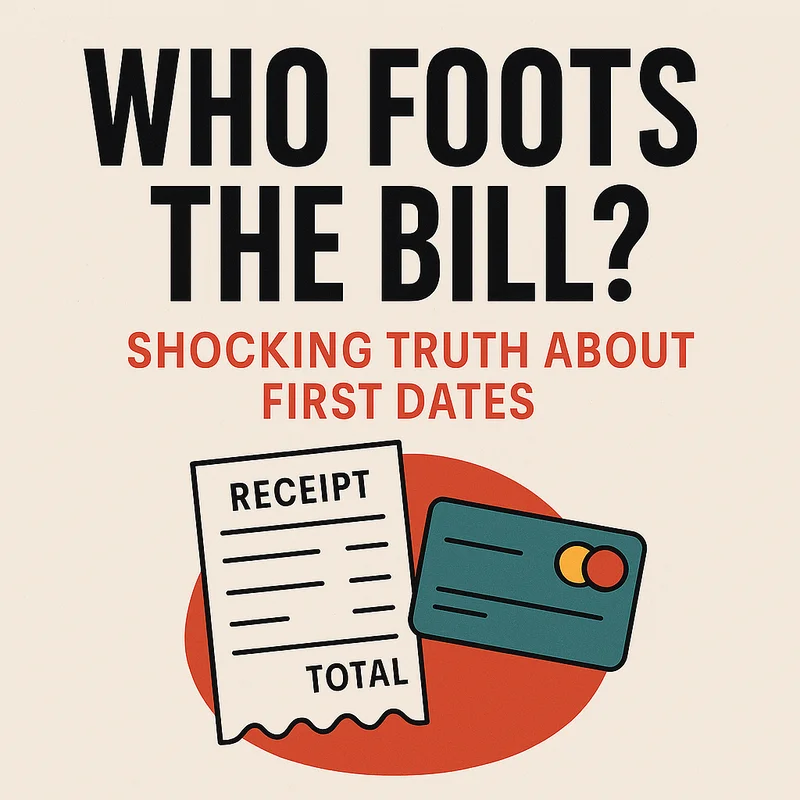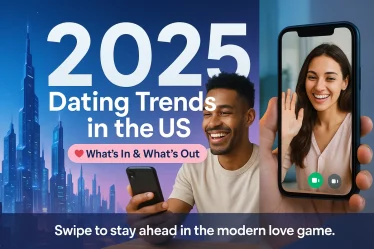
First dates come with a lot of pressure: What to wear, where to go, what to say—and most awkwardly, who should paywhen the bill arrives. It might seem like a small detail, but this moment can reveal a lot about your values, expectations, and even compatibility.
In this article, we dive into the heart of one of dating’s most debated questions: Who foots the bill on the first date?We’ll look at traditional vs. modern views, generational differences, global customs, and what people today really expect. Whether you’re dating casually or looking for something serious, this guide will help you navigate that crucial moment with confidence.
The Evolution of First-Date Etiquette
The rules of dating have changed dramatically over the years. In the past, etiquette books clearly stated that the man should pay—it was a sign of good manners and masculinity. But as gender roles evolved, so did dating expectations.
- 1950s–1980s: Men were expected to cover all expenses, especially if they initiated the date.
- 1990s–2000s: As more women entered the workforce, the idea of splitting the bill became more common.
- 2010s–Today: Equality in relationships means many people now prefer to split or take turns paying.
Modern daters value mutual respect and financial independence. Still, the old expectations haven’t disappeared completely, creating a gray area that confuses many couples.
Who Should Pay on the First Date? The Big Debate
So, what’s the “right” answer? The debate rages on.
Traditionally, many believe the person who initiated the date should pay—usually the man. But newer generations often prefer to split the bill or take turns.
- Boomers and Gen Xers: More likely to follow traditional gender roles.
- Millennials and Gen Z: Prefer equality, tend to discuss or split expenses.
A 2023 YouGov survey revealed that:
- 55% of men believe they should pay on the first date.
- Only 22% of women expect men to cover the cost.
- Over 60% of Gen Z respondents said they preferred to split the bill.
This shows a generational shift in attitudes toward dating and money.
What Men and Women Actually Expect Today
It’s one thing to talk about ideals, but what do people actually do?
- Men: Often feel pressured to pay, even if they’d prefer to split.
- Women: Increasingly willing to go Dutch, but may still appreciate the gesture.
- Both: Appreciate when money is discussed upfront or handled without drama.
According to the Match.com Singles in America study:
- 63% of women offered to split the bill.
- 76% of men said they appreciated the offer—even if they paid anyway.
These stats reveal an important truth: most people care more about your attitude than who actually pays.
Cultural and Regional Influences on Paying the Bill
Where you’re from can also influence what’s expected:
- United States & UK: Mixed views; splitting is common in urban areas.
- Europe (e.g., Netherlands, Germany): Splitting is the norm.
- Middle East & Asia: More traditional; the man is expected to pay.
- Latin America: Traditional norms dominate, but slowly shifting among younger generations.
Even within countries, urban daters may lean progressive while rural areas stay traditional. Understanding your date’s cultural background can help you avoid awkwardness.
How to Handle the Bill Without Killing the Mood
No one wants an awkward money moment to ruin the vibe. Here’s how to keep it smooth:
Tips for Handling the First-Date Bill:
- Offer early: “Want to split this?” shows respect and avoids surprise.
- Use humor: Light jokes ease tension (“I’ll cover it if you get dessert next time.”)
- Be confident: If you want to treat your date, own it without fuss.
- Read the room: Body language often reveals how your date feels about paying.
And remember: insisting on paying when your date clearly wants to split can come off as controlling rather than generous.
What Paying Says About You—And Your Relationship Potential
Believe it or not, how you handle the bill can send strong signals about your personality:
- Generosity vs. frugality
- Dominance vs. equality
- Confidence vs. insecurity
Some people see payment as a gesture of interest or investment, while others see it as a test of independence and partnership. There’s no universal right answer, but what matters most is whether your values align.
Conclusion: Splitting More Than the Check—Finding Balance in Modern Dating
Paying on the first date might seem minor, but it often reflects deeper dynamics like values, communication, and expectations. Whether you pay, split, or take turns, the key is to approach it with honesty, empathy, and respect.
What truly matters is not the bill—but how you handle it together.
Call to Action:
What do you think?
Have a funny or awkward first-date payment story? Share it in the comments below!
Q1. Who is supposed to pay on the first date?
Traditionally, the person who invited the other out—usually the man—was expected to pay. Today, many people prefer to split the bill or take turns paying, depending on personal values and cultural norms.
Q2. Is it rude to ask to split the bill on a first date?
Not at all. In fact, many modern daters appreciate the transparency. Asking politely and early in the conversation shows respect and avoids awkwardness at the end of the date.
Q3. Do women still expect men to pay on the first date?
Expectations vary. Some women still appreciate the gesture, especially if the man initiated the date. However, many women now prefer to offer to split or pay their share, particularly in more progressive or urban settings.
Q4. What if my date insists on paying?
If your date insists on paying, it’s okay to accept graciously or offer to cover the next outing. The key is mutual respect—don’t argue or turn it into a power struggle.
Q5. How do I bring up splitting the bill without sounding cheap?
You can frame it casually and respectfully. For example: “Do you want to split this?” or “I’m happy to cover mine if that’s cool with you.” A relaxed tone helps make the offer feel natural and thoughtful.
Q6. Is splitting the bill more common with younger generations?
Yes. Millennials and Gen Z are more likely to view dating as a partnership and prefer splitting the bill to reflect financial independence and equality.
Q7. Does who pays affect whether there’s a second date?
It can—depending on how the situation is handled. Most people care more about the attitude behind the action. Being generous, thoughtful, or communicative about finances can leave a stronger impression than simply picking up the tab.



